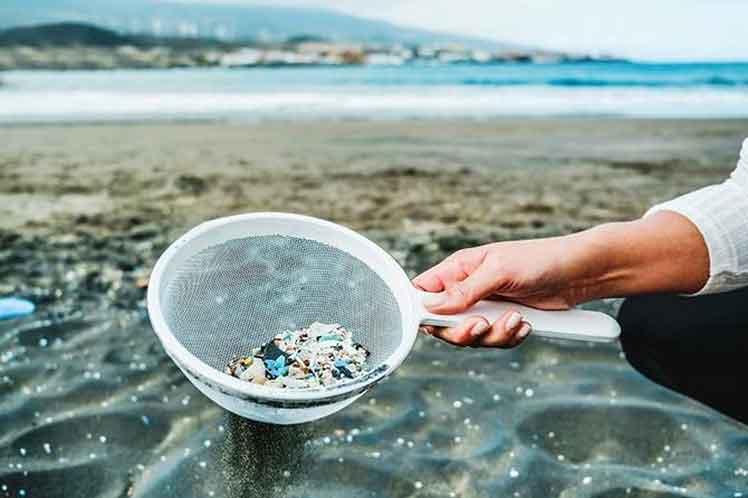This was shown by research from Northeastern University in Boston, Massachusetts, United States, which points to the loss of the ocean’s ability to help offset the climate crisis by slowing the rate at which carbon is extracted from the sea surface to the depths.
“The ocean has been part of a carbon sink process in which dead phytoplankton clump together and fall to the deep ocean in showers of what looks like “marine snow, however, microplastics in the ocean are slowing the process by making such “marine snow” more unsinkable, Aron Stubbins, the study’s lead author, explained.
The research, published in the journal Marien Chemistry, points out that the slowdown in the rate of decline of marine snow mixed with microplastics “comes at a time when carbon sequestration is more important than ever.”
He also points out that as that carbon sinks, it is transported to deeper parts of the ocean, and it is essential to know to what extent the ocean compensates for warming due to human emissions of carbon dioxide.
jrr/jav/mem/cdg









